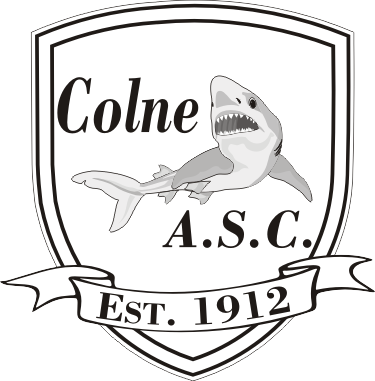DRINK AND BE MERRY!
Exercise is thirsty work. When your swimmers exercise they
lose water not only through sweat, but also through water vapour from the air
they breathe out. The harder and longer they exercise the more fluid they will
lose. It is difficult for swimmers to appreciate how much fluid they are losing
through sweat as they are already in water! However, an excessive loss of fluid
- dehydration - impairs performance and has health implications.
When a swimmer becomes dehydrated, their blood thickens and
so the heart has to work harder to pump blood around the body. It becomes much
harder to do the same level and intensity of exercise. Also the more dehydrated
they become, the harder it is to sweat, and so their body temperature starts to
rise.
Swimmers can limit their fluid loss by following a few
guidelines:
·
Ensure they have been drinking regularly prior
to the session - prevention is better that cure. If they are training in the
evening, then they need to ensure that they have been drinking regularly all
day. If they are training first thing in the morning, then they should have
plenty to drink before they set out.
·
Drink during exercise. All swimmers should be
encouraged to drink during training sessions, even beginners who are doing very
low level workouts. This establishes good habits which will stay with them
through their swimming career.
Swimmers should be encouraged to drink as much as they comfortably can. Little
sips taken regularly may help swimmers to achieve this.
·
After training, maintain hydration. It is
virtually impossible to drink too much.
What to drink?
There are a number of different commercial products on the
market which are aimed at athletes, each claiming to be the best for top level
performance. The type of drink to chose depends on the level and intensity of
the exercise, the temperature and the rate at which the individual sweats. The
following table gives a working guide:
|
Exercise conditions |
Sports drink |
|
Exercise lasting less than 30 minutes |
Water |
|
Low to moderate intensity exercise lasting up to 1 hour |
Water or a fluid replacing drink (hypotonic or isotonic) |
|
Strenuous exercise lasting 1-2 hours |
Water or a fluid replacing drink (hypotonic or isotonic) |
|
Strenuous exercise lasting more than 90 minutes under cool
conditions |
Hypotonic or isotonic sports drink, or a carbohydrate
drink |
·
A hypotonic drink contains fewer particles per
100ml than the body's own fluids. As it is more dilute
it is absorbed faster than plain water. Typically an
hypotonic drink contains less than 4g of sugar per 100ml.
·
An isotonic drink has the same number of
particles per 100ml and is therefore absorbed at the same rate as plain water.
Most commercial isotonic drinks contain between 4g and 8g of sugar per 100ml.
In theory these drinks provide an ideal compromise between hydration and
refuelling with carbohydrates.
·
A carbohydrate drink (hypertonic) contains more
particles per 100ml than the body's fluids, and is therefore not good for rehydrating during training. It is best used after training
to refuel the muscles.
|
hypotonic drinks |
isotonic drinks |
|
Water Diluted squash (1 part squash to 6 parts water) Diluted
fruit juice (1:3) |
Diluted squash (1:4) Diluted fruit juice (1:1) |
Try and ensure that your swimmers do not drink too many
fizzy drinks during the day as these are diuretics and can promote fluid toss
rather than aid rehydration. They are also not good
for their teeth!
The urine test
To check how hydrated your swimmers are, get them to do the
urine test(!). When they visit the toilet, get them to
look at the colour and nature of their urine. If it is pale and copious, then
they are well hydrated and should keep up the good work. If it is dark yellow,
and there is not a lot of it, then they are becoming dehydrated and should
ensure that they take plenty of fluids. Remind the swimmers that thirst is a very poor indicator of hydration - when you feel
thirsty you are already becoming dehydrated.
 |



